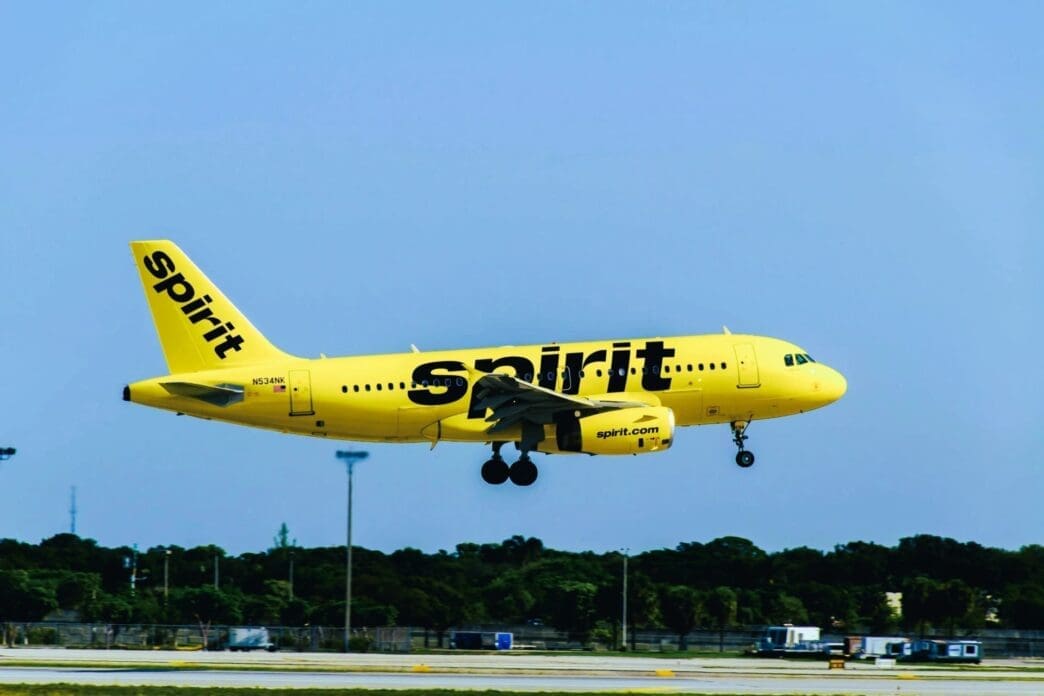Spirit Airlines, the ultra-low-cost carrier known for its budget-friendly fares, is facing potential bankruptcy protection as it grapples with rising debt, increased competition, and the fallout from failed merger talks with Frontier Airlines. In a turbulent period for the airline, sources have indicated to CBS News that Spirit is preparing to file for bankruptcy, raising concerns for travelers and employees alike.
Since the onset of the COVID-19 pandemic, Spirit Airlines has struggled to stabilize its financial footing, amassing losses exceeding $2.5 billion since 2020. This dismal performance is largely attributed to a significant downturn in travel demand during the pandemic era, which has yet to fully recover. Recent data points to a mixed recovery; while passenger numbers showed a modest increase of 2% in the first six months of 2024 compared to the same period last year, the airline’s revenue per mile from fares has plummeted nearly 20%. The combination of decreased spending by travelers—down 10% per mile—has exacerbated Spirit’s financial woes, leading to questions about its long-term viability.
Adding to the pressure, Spirit Airlines recently called off proposed merger talks with Frontier Airlines, a move that could have provided much-needed support to stabilize the airline in the competitive low-cost travel market. The failure of these talks has left Spirit in a precarious position, prompting speculation about its future operations and ability to continue serving its 17 destinations, including key markets like Baltimore, Fort Lauderdale, and Myrtle Beach.
Travelers considering flights with Spirit Airlines are understandably anxious amidst the unfolding situation. CBS News Travel Editor Peter Greenberg advises consumers to take precautionary measures. “I am not going to tell you to book away from Spirit, but what I will tell you to do is hedge your bets,” Greenberg said. He recommended booking a refundable ticket with a competing carrier as a safety net. “If Spirit doesn’t fly, you’ll have a Plan B,” he added, underscoring the importance of having alternative travel arrangements in today’s uncertain landscape.
Greenberg also suggested that travelers use credit cards to purchase Spirit tickets. This method offers additional security; should Spirit go bankrupt, consumers could benefit from automatic refunds through their credit card providers, ensuring they are not left stranded without recourse.
As Spirit Airlines navigates this tumultuous period, the airline has yet to make an official statement regarding the potential bankruptcy filing. However, stakeholders, including investors, employees, and traveling customers, are keenly awaiting further developments.
For Spirit Airlines, which has built its reputation on low-cost travel options, the imperative to adapt and adjust in the face of evolving market dynamics has never been more critical. The airline’s struggles reflect broader trends within the aviation industry, where rising operational costs and fierce competition have become increasingly pronounced.
The future remains uncertain as the airline weighs its options and prepares for the possibility of bankruptcy protection, a measure that could dramatically reshape its operational landscape. Whether Spirit Airlines can successfully navigate this period of financial strain while retaining its customer base remains to be seen.
About Spirit Airlines
Spirit Airlines is an ultra-low-cost carrier headquartered in Miramar, Florida. The airline has earned a reputation for offering low base fares to travelers, making flying accessible to millions. Despite its budget-friendly approach, Spirit Airlines has encountered significant challenges in recent years, particularly due to the COVID-19 pandemic and fluctuating travel demand.








